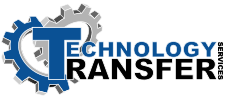Instrumentation and control technicians maintain the safe and efficient operation of industrial measurement and control systems. A broad knowledge of multiple disciplines is required to effectively work with and troubleshoot instrumentation systems. The Introduction to Instrumentation and Control covers the principles of measurement, standards, and an overview of instrumentation and control.
Introduction to Instrumentation and Controls
Instrumentation and control technicians maintain the safe and efficient operation of industrial measurement and control systems. A broad knowledge of multiple disciplines is required to effectively work with and troubleshoot instrumentation systems. The Introduction to Instrumentation and Control covers the principles of measurement, standards, and an overview of instrumentation and control.
Process Measurement
Process measurement is a critical component of ensuring that an industrial facility operates as efficiently as possible. Common processes that are measured include pressure, level, and flow. These, along with process loop tuning and the basics of valve control are covered in the Process Measurement subject area.
Process Controls and Monitoring
Controlling and monitoring industrial operations using today’s advanced equipment and techniques enables continuous processes to function at optimal efficiency, as well as allowing for automation of the processes. A thorough understanding of process control methods and of the monitoring required to achieve effective control will help to ensure that plant personnel are able to maintain, troubleshoot, and repair these vital plant systems.
Programmable Logic Controllers (PLC)
Programmable Logic Controllers (PLCs) have become an integral part of the industrial environment. As a technician involved with the processes controlled by PLCs, it is important to understand their basic functionalities and capabilities. This subject area, Programmable Logic Controllers, covers the software and hardware used, along with the addressing and communication capabilities required for PLCs to function properly.
Process Analyzers
Process analyzers are used to determine qualitative properties of a process parameter, such as impurities in water or moisture content of a gas. A technician may encounter various types of analyzers depending upon the industry and specific parameters of concern within the process. A fundamental knowledge of process analyzers will help the technician to perform his or her duties in a more efficient matter. The Process Analyzers subject area covers gas chromatography, hydrogen and oxygen analyzers, and moisture analyzers.
Distributed Control Systems (DCS)
Control system architecture can range from simple local control to highly redundant distributed control system, or DCS. The complexity of DCSs require that personnel understand typical system architecture, communication strategies, interface strategies, and system reliability, which are covered in this subject area, DCS.

